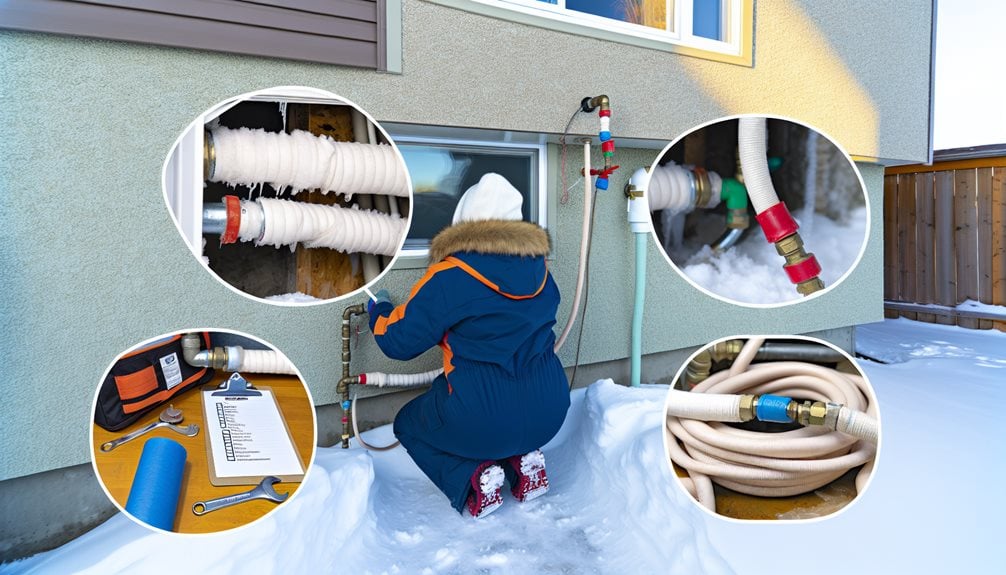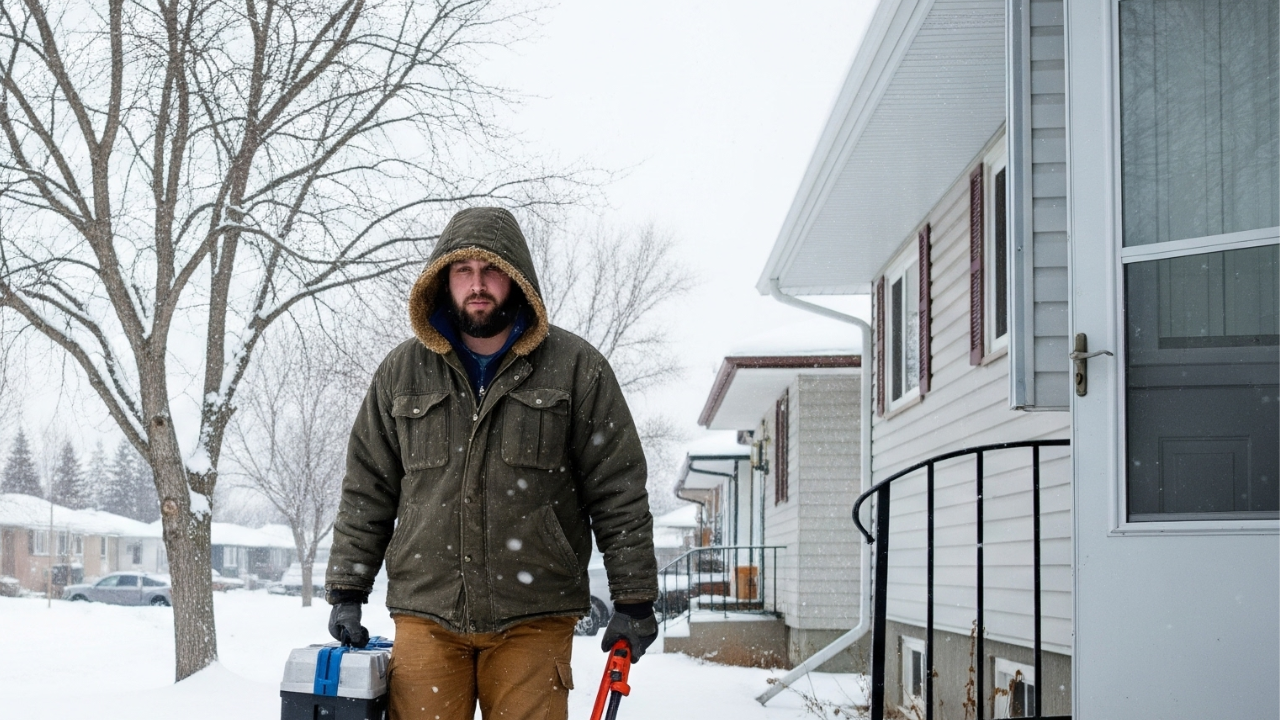

As Grande Prairie residents know all too well, Alberta winters can be brutal on home plumbing systems. With temperatures regularly dropping well below freezing, homeowners need to take proactive steps to protect their pipes, water heaters, and other plumbing components from winter damage.
Understanding proper winter plumbing preparation can save you thousands of dollars in emergency repairs and prevent the headache of dealing with frozen or burst pipes during the coldest months of the year.

Before the harsh winter weather sets in, having your plumbing system professionally inspected is crucial. This comprehensive assessment helps identify potential vulnerabilities that could lead to costly problems once temperatures drop. A thorough inspection should cover your home’s water heater, exposed pipes, outdoor spigots, and septic system, if applicable.
Professional plumbers recommend scheduling these inspections in early fall, giving you ample time to address any issues before winter arrives. For comprehensive plumbing guidance and maintenance tips, resources like Plumbing 101s offer valuable insights for homeowners looking to understand their plumbing systems better.
Your water heater works harder during the winter months, making pre-season maintenance essential. This includes flushing the tank to remove sediment buildup, checking the temperature and pressure relief valve, and ensuring proper insulation around the unit. Boiler systems require similar attention, including bleeding radiators and checking for leaks in the heating system.
Pipes in unheated areas like basements, crawl spaces, and garages are particularly vulnerable to freezing. Proper insulation using pipe sleeves or heat tape can prevent frozen pipes. Pay special attention to pipes along exterior walls and in areas where cold air might infiltrate.
Disconnecting garden hoses and shutting off water to outdoor spigots is a simple but critical step. Water left in these lines can freeze, expand, and cause pipes to burst inside your walls.
Despite your best preparation efforts, winter plumbing emergencies can still occur. Having a plan in place can minimize damage and stress when problems arise.
Know Your Main Water Shut-Off: Every family member should know where the main water shut-off valve is located and how to operate it. In case of a burst pipe, quickly shutting off the water supply can prevent extensive water damage.
Keep Emergency Supplies Handy: Maintain a kit with pipe insulation, heat tape, a hair dryer (for thawing small frozen sections), and emergency contact numbers for local plumbing services.
Recognize Warning Signs: Be alert for signs of freezing pipes, such as no water coming from faucets, strange smells from drains, or visible frost on exposed pipes.
For homes with septic systems, winter brings unique challenges. Snow cover actually helps insulate the system, so avoid parking vehicles or placing heavy objects on the septic field that could compact the insulating snow layer. Regular pumping before winter is essential, as a full tank is more likely to freeze.
While homeowners can handle basic winterization tasks like disconnecting hoses and adding pipe insulation, certain maintenance tasks require professional expertise. Water heater servicing, boiler maintenance, and septic system pumping should be performed by certified technicians who understand local codes and safety requirements.
Professional plumbers also have specialized equipment for tasks like video drain inspection and high-pressure cleaning that can identify and resolve issues before they become winter emergencies.
For those interested in learning more about plumbing maintenance and repair techniques, educational resources such as the Plumbing 101s blog provide detailed guides and tips for homeowners.
Winter plumbing preparedness isn’t just about preventing damage—it’s also about optimizing energy efficiency. Properly insulated pipes reduce heat loss, lowering your energy bills.
Water heater blankets can improve efficiency, especially for older units. Setting your water heater to 120°F provides adequate hot water while reducing energy consumption.
As you prepare for winter, also consider planning for spring maintenance. Winter can reveal weaknesses in your plumbing system that need attention once warmer weather returns. Keep notes about any issues you encounter during the winter months to address them during spring plumbing maintenance.
Winter plumbing preparedness is an investment in your home’s protection and your family’s comfort. While some preparation tasks can be handled by homeowners, don’t hesitate to call professional plumbers for complex maintenance, emergency repairs, or when you’re unsure about any aspect of your plumbing system.
Taking proactive steps now will help ensure your plumbing system operates reliably throughout Grande Prairie’s challenging winter months, giving you peace of mind and potentially saving you from costly emergency repairs when temperatures plummet.